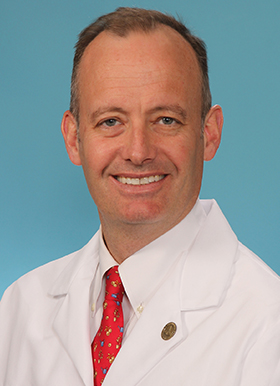
Benjamin D. Humphreys, MD, PhD
Joseph Friedman Professor of Renal Diseases in Medicine and Chief, Division of Nephrology
- Email: humphreysbd@nospam.wustl.edu
Additional Titles
- Professor
Related Links
Location
Patients seen at
Center for Advanced Medicine
- Physical Address: 4921 Parkview Place, Saint Louis, MO, United States
-
Mailing Address:
4921 Parkview Place
Suite C, 5th Floor
St. Louis, MO 63110 - Phone: 314-362-7603
- Fax: 314-747-2460
Mailing Address
Division of Nephrology
-
Mailing Address:
660 S. Euclid Ave., CB 8126
St. Louis, MO 63110
Dr. Humphreys in the News:
- WashU Nephrologists Marcos Rothstein and Benjamin Humphreys Work to Increase the Pool of Transplantable Kidneys
- Benjamin Humphreys Elected Vice-President of ASCI
- Benjamin Humphreys Joins Board of NIDDK Scientific Counselors
- Second Chan Zuckerberg Grant Awarded to Dr. Benjamin Humphreys
- Dr. Benjamin Humphreys Profiled in Washington People
- Humphreys Elected Secretary-Treasurer to ASCI Council
- Humphreys, Jain and Program Committee meet to Plan Kidney Week 2018
- Humphreys Awarded Chan Zuckerberg Institute Grant
- Humphreys Installed as Joseph Friedman Professor
Education
- Undergraduate: Harvard College, Cambridge, MA, (1991)
- MD, PhD: Case Western Reserve University, Cleveland, OH, (2000)
- Internal Medicine Residency: Massachusetts General Hospital, Boston, MA, (2002)
- Nephrology Fellowship: Brigham and Women’s Hospital, Boston, MA, (2005)
Board Certifications
- Nephrology: Board Certified
Recognition
- President, American Society of Clinical Investigation
- Member, Association of American Physicians
- Established Investigator, American Heart Association
- Member, Board of Scientific Counselors for the National Institute of Diabetes and Digestive and Kidney Diseases
Research Interests
The mission of the Humphreys Lab is to understand the cellular and molecular mechanisms of kidney regeneration and thereby identify new therapeutic strategies for humans suffering from kidney disease. A primary focus is on stem cell-based therapeutic approaches. We use mouse as a model system as well as human pluripotent stem cells. The work encompasses two main areas:
- Developing stem cell-based approaches to treat kidney disease in humans.
- Understanding the mechanisms of kidney repair and recovery after injury.
Publications
Selected Publications
1. N. Ledru, P.C. Wilson, Y. Muto, Y. Yoshimura, H. Wu, A. Asthana, S.G. Tullius, S.S. Waikar, G. Orlando and B.D. Humphreys. Predicting regulators of epithelial cell state through regularized regression analysis of single cell multiomic sequencing. BioRxiv. 2023.
2. H. Li, E.E. Dixon, W. Wu and B.D. Humphreys. Comprehensive single-cell transcriptional profiling defines shared and unique epithelial injury responses during kidney fibrosis. Cell Metabolism, 2022; 34(12):1977-1998
3. Y. Muto, E.E. Dixon, Y. Yoshimura, H. Wu, K. Omachi, N. Ledru, P.C. Wilson, A.J. King, E.N. Olson, M.G. Gunawan, J.J. Kuo, J.H. Cox, J.H. Miner, S.L. Seliger, O.M. Woodward, P.A. Welling, T.J. Watnick and B.D. Humphreys. Defining cellular complexity in human autosomal dominant polycystic kidney disease by multimodal single cell analysis. Nat. Comm., 2022; 13(1):6497.
4. H. Wu, R. Gonzalez Villalobos, X. Yao, D. Reilly, T. Chen, M. Rankin, E. Myshkin, M.D. Breyer and B.D. Humphreys. Mapping the Single Cell Transcriptomic Response of Murine Diabetic Kidney Disease to Therapies. Cell Metabolism, 2022; 34(7):1064-1078.
5. P.C. Wilson, Y. Muto, H. Wu, A. Karihaloo, S.S. Waikar and B.D. Humphreys. Multimodal single cell sequencing implicates chromatin accessibility and genetic background in diabetic kidney disease progression. Nat. Commun., 2022;13(1):5253.
6. E.E. Dixon, H. Wu, Y. Muto, P.C. Wilson and B.D. Humphreys. Spatially Resolved Transcriptomic Analysis of Acute Kidney Injury in a Female Murine Model. J. Am. Soc. Neph. 2022; 33(2):279-289.
7. Y. Muto, P.C. Wilson, N. Ledru, H. Wu, H. Dimke, S.S. Waikar and B.D. Humphreys. Single cell transcriptional and chromatin accessibility profiling redefine cellular heterogeneity in the adult human kidney. Nat. Commun. 2021; 12:2190.
8. Y. Kirita, H. Wu, K. Uchimura, P.C. Wilson and B.D. Humphreys. Cell profiling of mouse acute kidney injury reveals conserved cellular responses to injury. Proc. Nat. Acad. Sci., 2020; 117(27):15874-15883.
9. M. Chang-Panesso, F.F. Kadyrov, M. Lalli, H. Wu, S. Ikeda, E. Kefaloyianni, M.M. Abdelmageed, A. Herrlich, A. Kobayashi and B.D. Humphreys. FoxM1 drives proximal tubule proliferation during repair from acute kidney injury. J. Clin. Invest., 2019;129(12):5501-5517.
10. H. Wu, K. Uchimura, E. Donelly, Y. Kirita, S.A. Morris and B.D. Humphreys. Comparative Analysis of Kidney Organoid and Adult Human Kidney Single Cell and Single Nucleus Transcriptomes. Cell Stem Cell, 2018; 23(6):869-881. *Best of Cell Stem Cell